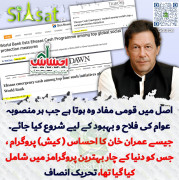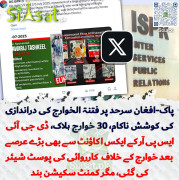India called for greater coordination with the United States on Afghanistan, voicing fear that Islamic radicals would gain strength once Western forces pull out.
NATO leaders in a May 21 summit in Chicago committed to pulling combat troops out of Afghanistan by the end of 2014 as Western nations grow tired of more than a decade of war and pessimistic on the chances of further progress.
India is one of the most vocal supporters of continued engagement and has given Afghanistan more than $2 billion since the US-led invasion in 2001 overthrew the Taliban regime, which sheltered virulently anti-Indian militants.
Ahead of high-level annual talks between India and the United States on June 13, Nirupama Rao, New Delhi's ambassador to Washington, said the two nations have been holding talks on building "a stable, democratic and prosperous Afghanistan."
"These consultations must be strengthened," Rao said at the Atlantic Council, a think tank.
"We understand that after 10 long years of war there is a manifest and genuine desire to seek an end to conflict. But equally, we must ensure that the enormous sacrifices and efforts of the past decade have not been in vain," she said.
"Given the history of the last few decades in Afghanistan and the tide of extremism and radicalism that has swept across that country to the great detriment of its men, women and children, one cannot but help be concerned about what the future holds for that country" after the NATO pullout, she said.
India's involvement in Afghanistan has enraged neighboring Pakistan, which helped create the Taliban regime and accuses its historic rival of seeking to encircle it.
The United States partnered with Pakistan after the September 11, 2001 attacks. But relations have plummeted, with US concerns about Pakistan's orientation soaring after US forces found and killed Osama bin Laden near the country's main military academy last year.
The United States has welcomed India's contributions in Afghanistan but some US policymakers believe that Pakistani intelligence has maintained links to Islamic extremists due to a fixation on New Delhi's influence.
Yashwant Sinha, a lawmaker from India's main opposition Bharatiya Janata Party, was blunter about fears on Afghanistan during a separate appearance in Washington at the Brookings Institution.
"I have great fears that Pakistan, for its own geopolitical reasons, might want to encourage Taliban to again take over Afghanistan," said Sinha, who served as foreign and finance minister when his right-leaning party was in power from 1998 to 2004.
Sinha said Afghanistan lacked a sufficient military -- or an anti-Taliban force, such as the Northern Alliance which enjoyed Indian, Iranian and Russian support before the war -- to withstand an assault.
"I don't see any local resistance building up immediately if the Taliban were to attempt to overrun Afghanistan," Sinha said.
"NATO has to stay the course in Afghanistan until we are absolutely confident that the Afghan army and the armed forces of Afghanistan are in a position to meet the Taliban threat," he said.
But opinion polls show that a majority of Americans want to end their country's longest war, with many US policymakers concluding that it is unrealistic to eliminate the Taliban through force.
US President Barack Obama and other Western leaders have vowed to support Afghanistan through military training and other assistance after the pullout of combat troops.
Indian Foreign Minister S.M. Krishna will travel to Washington for the June 13 annual dialogue, which is part of efforts by the world's two largest democracies to build closer relations.
India and the United States recently had a rift as Washington urged the import-dependent emerging economy to cut oil imports from Iran as a way to pressure Tehran over its contested nuclear program.
Despite initial unease, India has reduced Iranian imports. The United States is expected to announce in the coming weeks that it will exempt New Delhi from sanctions under a new law that punishes countries that do business with Iran.
http://news.yahoo.com/india-fears-afghanistan-nato-pullout-013621759.html


































